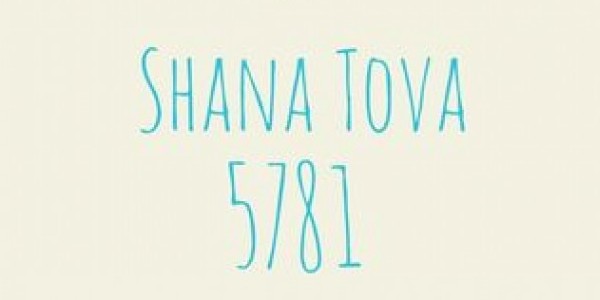Rosz ha-Szana 5781- życzenia
18/09/2020 | Na stronie od 17/09/2020

Wszystkim znajomym, dla których zaczyna się rok 5781 życzymy dobrego, słodkiego i zdrowego roku.
Życzenia nadesłane
High Holiday greeting from the ICCJ President Rev. Dr Bo Sandahl
Our common understanding of time is derived from the time it takes for the earth to circle the sun. During the year, there are many New Years to celebrate. There are many years and most of them are based on astronomical facts.
There are years that are religiously defined. The Jewish year has its starting point in the number seven and the moon’s 29,5 days cycle. In Genesis, we are told about the process of creation in seven days, with the seventh day as its completion, making the Shabbat the most important day in the Jewish calendar. And, as is well known, the Jewish year is 354 days long, which is the length of the lunar year, but adjustments are made to coordinate with the solar year.
The Ecclesiastical year begins with the first Sunday of Advent and, as the Jewish year, it’s centred around holidays but also in agreement with the astronomical year.
The Jewish year and, not least, the impending High Holidays bear witness to a spiritual richness. Holidays are a communal remembrance of events that have shaped a people and formed tradition, culture, liturgy and way of life. Holidays tell stories of new beginnings, transformation and hope. Out of slavery comes freedom, from teshuvah comes forgiveness, dead ends become new beginnings, vulnerability becomes strength, and even the most distressing moments in a communal history become something to remember and even celebrate with gratitude.
2020 is a year we will remember, for a very long time. It has been so different. Many plans have been changed and our yearly international conference was postponed. As I write this, we still don’t know if it will be possible to arrange a conference for next year. Communication has become digital in an unprecedented way. The Covid -19 virus has made us all change our way of life and how this will affect us in the future is something we still don’t know.
In all this, the communal stories we share from the past don’t tell us about Covid -19 but of other disasters and failures. Still, out of the most troublesome situations, new beginnings can grow and I’m confident we will experience the same this time. In the meantime, let’s be gentle with each other and take every precaution necessary!
Let me also remind you of the new layout in which our resource page JCrelations has been published. Please check it out and get acquainted with it! It is a great source for everyone involved in Jewish-Christian dialogue (the address is www.jcrelations.net).
To those who will celebrate the High Holidays, on behalf of the executive board, the staff at the Martin Buber House, our General-Secretary Anette Adelmann, I wish to say Shana Tova uMetuka! For us who don’t, we will follow you closely with ‘holy envy’! (K. Stendahl)
Dr. Alon Goshen-Gottstein would like to greet all friends of Elijah for Rosh Hashana, the Jewish New Year:
(Elijah Interfaith Institute)
Dear Friends,
At the cusp of a new year, one can't fail to take account of what an extraordinary year this has been. It has been a difficult year, but in that difficulty are also many blessings. Many of you have followed the Coronaspection project I undertook, in which I interviewed 39 religious leaders regarding the spiritual challenges and messages of Corona. One of the key messages of the entire project is that in all things we must find the positive, the silver lining. One positive message concerned a sense of unity of humanity. The virus brings forth a deeper sense that all humanity must be united. The pandemic gives us the opportunity to deepen our sense of unity. (see).
I am personally delighted that the difficulties of Corona have allowed me to undertake this rich project, that I believe has brought a lot of hope to many people. You may have also seen the announcement of a book that grew out of this project: Coronaspection: World Religious Leaders Reflect on COVID-19. These are some of the past blessings for me over a difficult year.
This message of unity is particularly relevant for Rosh Hashana. Unity, the unity of mankind as it looks to God's kingdom, is the key message of Rosh Hashana. This is the most universal moment in our annual liturgy. It is also a time to consider Israel's election, its mission and the challenges that are involved in its performing a mission to the entire world. It is a very opportune moment for sharing the good news of a project that has been long in the making and will be published in just 2 or 3 weeks by Academic Studies Press. The book is titled: Judaism's Challenge: Election, Divine Love and Human Enmity.
The book brings together about a dozen scholars to reflect on various perspectives of what it means to be Israel and how Israel relates to the nations. If you follow the link, you can see the list of subjects and contributors. It's a timely read and I think many of you will find it worthy of your attention. While it's presently listed as preorder, you can already order it with a 40% discount at this link. (put in the code: JUDAISMSCHALLENGE at checkout). You can also order on Amazon a Kindle version.
May the coming year bring us health, wisdom and the ability to see ever more deeply what we are called to bring into the world
Shana tova.